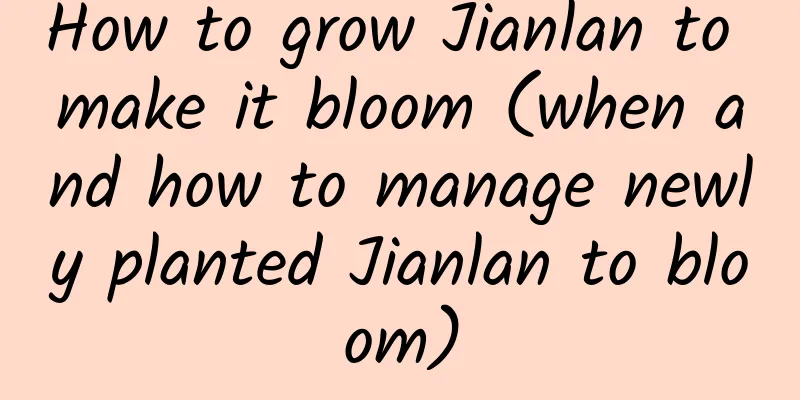How to make cuttings grow faster?

|
The cutting operation of Gloxinia is simple. As long as you choose the right branches, leaves and buds, insert them into the appropriate soil and maintain a certain temperature, they can be propagated well. Next, I will introduce the cutting method of Gloxinia. How to propagate Gloxinia by cuttings1. Cut the cuttings To propagate Gloxinia, you need to choose appropriate cuttings. You can cut one or two branches from the lush branches of the mother plant, and the branches are about 2-3 cm. Then cut off the leaves at the bottom of the Gloxinia branches to avoid the loss of excess nutrients. It is best to apply root water on the large branches to promote rapid growth. 2. Prepare the soil Gloxinia is suitable for growing on loose, fertile humus soil. To cultivate Gloxinia, it is necessary to mix the soil in a ratio of 1:1:3, and then add agricultural fertilizer made from fermented poultry manure to provide Gloxinia with the nutrients it needs for growth. 3. Cutting method When cutting Gloxinia, you need to insert the branches of the plant directly into the soil and compact the soil around the branches to prevent it from falling over. In this way, you can move the Gloxinia to a place with scattered light and receive natural light around the clock. After 10-15 days, the Gloxinia will be able to take root and sprout. 4. Watering method When planting Gloxinia, adjust the frequency of watering according to seasonal changes. Water once a week in spring and autumn to promote vigorous growth of Gloxinia. When the temperature is high in summer, water once a day. Spray water around the Gloxinia one or two times to increase the air humidity. Precautions for cuttings of Gloxinia1. Base soil In the process of cuttings of Gloxinia, it is best to use the substrate for cuttings first, and then transplant them into new soil after they have taken root and sprouted. Whether it is leaf cuttings or branch cuttings, it is best to use a substrate mixed with perlite and vermiculite, or sterilized river sand or fine sand, but the substrate must be moist. 2. Control the temperature Gloxinia cuttings require a temperature that is neither too hot nor too cold, preferably around 22°C. During the branch cutting period, the temperature should be controlled at 18-20°C, and a small amount of water should be applied to maintain humidity, and roots will take shape in 15 days. When transplanting rice seedlings, the temperature should be kept at 22~25℃ and the humidity should be high. The seedlings will germinate after 20 days and then be transplanted into pots . |
<<: When is the best time to transplant climbing roses?
Recommend
Tremella's growing environment and local conditions
Tremella growth environment and conditions Tremel...
Can sweet potatoes be grown in pots?
Can sweet potatoes be grown in pots? Sweet potato...
The application value of morning glory
The ornamental value of morning glory The leaves ...
Sugarcane planting time and maturity time
Sugarcane is grown in Fujian, Guangdong, Hainan, ...
Why are the leaves of poinsettia not red?
Improper light for the growth of poinsettia Impro...
How to grow jasmine and what to pay attention to
The elegant and lovely posture of the jasmine is ...
Can clematis be grown indoors?
1. Can it be grown indoors? It can be grown indoo...
Breeding techniques of white jade snail
As a breeding industry that has emerged in recent...
When and how to plant sword beans
Macadamia bean planting time Sword beans are gene...
How to cure the growth of coral
Why does it grow too long? There are generally tw...
Can bougainvillea be grown hydroponically?
When it comes to hydroponics, there are two types...
How to germinate loquat seeds
1. Wash first It is relatively easy to germinate ...
How to propagate lilies
Growth habit Lilies like to grow in a cool and dr...
How to deal with gardenia after it withers
1. Apply fertilizer in time After the gardenia fl...
How to propagate dianthus and what to pay attention to
How to reproduce dianthus There are three common ...









